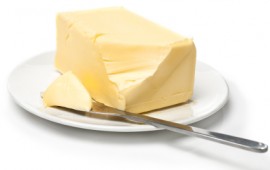All Things Fat: Everything You Ever Wanted to Know About Dietary Fats
Author: Shannon Miller Lifestyle

Because we know you’ve been staying up at night worried about the complex world of dietary fats, we’ve compiled a cheat sheet about these mysterious little things in order to possibly clarify any confusion.
For example, you might think that having fats in your diet is not a good thing, but actually they serve many vital functions, such as:
- Providing your body with energy
- Supporting cell growth
- Aiding in the protection of your organs
- Helping to keep your body warm
- Helping your body to absorb some nutrients
- Helping your body to produce important hormones
One important thing to remember, though, is to consume more good fats than bad fats (the difference is discussed below). Another important piece of information is that all types of fat are energy dense, so eating too much fat can equate to taking in too many calories. Try not to take in more calories than you burn.
The 4 major kinds of dietary fats are:
- Saturated and transfats – these are the bad ones because they raise bad cholesterol (LDL). These types of fats are typically solid in form, like a stick of butter.
- Monounsaturated and polyunsaturated fats – these are the good ones because they lower bad cholesterol. These types of fats are normally liquid in form, like vegetable oil.
In order to maintain a diet that is low in saturated and transfats, make eating the following foods a priority:
- Vegetables
- Fruits
- Whole grain/high-fiber foods
- Fat-free and low-fat dairy products
- Lean meats
- Poultry
- Fish
